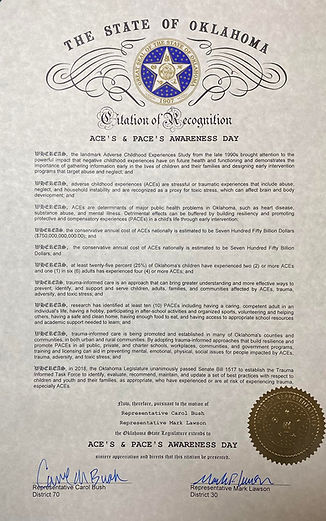
CIRCA supports innovative and significant research that helps us better understand the negative impact of childhood adversity on health and development, leading to more effective interventions to reduce those effects and promote resilience, health, and well-being in individuals, families, and communities.
Background

In 1998, the Adverse Childhood Experiences (ACEs) study demonstrated the profound and enduring effects of abuse, neglect, and other types of family dysfunction on adults’ health and well-being. More than 17,000 patients enrolled in a premium health care plan in California were asked to report on their exposure to 10 types of ACEs before the age of 18: physical, emotional or sexual abuse, physical or emotional neglect, parents’ mental illness, alcohol or drug abuse, or criminality, domestic violence, or divorce. Working with colleagues at the Centers for Disease Control and Prevention, these reports were analyzed to see if they predicted their health behaviors and health. The results shocked the researchers conducting the study (Felitti et al 1998).


Drs. Jennifer Hays-Grudo and Rob Anda at the 2024 Children's Behavioral Health Conference in Norman, OK
Not only was exposure to ACEs more common than expected, with more than 6 out of 10 patients reporting at least one ACE, many were exposed to multiple types of adversity. Most importantly, the more ACEs reported, the more likely the patients were to have serious physical health problems (cancer, heart disease, etc.), mental health problems (depression, anxiety, etc.), and engage in health-harming behaviors (smoking, alcohol abuse, etc.). Since this first study, these findings have been repeated in thousands of patients in the U.S. and around the world (Anda et al, 2006; Bellis et al., 2019).
Scientific evidence suggests that ACEs have such powerful effects on health and behavior because they cause stress-related reactions in the developing brain and body. These reactions can cause impairments in cognitive, social, and emotional development as well as in developing organ systems. The effects of chronic or cumulative or “toxic” stress emerge early and persist throughout the life cycle (Shonkoff, et al., 2012) and become “biologically embedded” (Miller, Chen and Parker, 2011), as the body physically attempts to adapt to this cumulative stress or “allostatic load” (McEwen, 1998). Studies of both humans and animals indicate that the impact of early life adversity may even be transmitted across generations through epigenetic changes. Historical trauma can also play a role in increasing the likelihood that some communities, families, and individuals will experience more trauma and stress in childhood.

Bringing Visibility to Oklahoma
Interest in the effects of early life adversity is a rapidly expanding field of inquiry. Advances in neuroimaging, epigenetics, and developmental psychopathology have improved our ability to study the effects of adversity, trauma, and stress on health and development. Building on this interest, CIRCA was established in 2016 as the first national interdisciplinary research center designed to integrate both biological and behavioral approaches to the study of adversity and resilience. CIRCA provides both direct support for research projects, but also provides technical training and assistance through its research cores, allowing researchers to learn and apply new scientific techniques and analyses. We have funded and mentored more than 20 researchers who are seeking to better understand and reduce the effects of ACEs. They have published dozens of research studies and have been awarded highly competitive research awards. Our researchers are highly sought-after as speakers at national and international conferences, attract and train high-caliber students from related labs throughout the U.S. and the world, and place graduates and post-doctoral fellows in world-class research institutions following their training in the Center.
We hosted the first Adversity and Resilience Research conference in October 2019 with interdisciplinary events and speakers from across the U.S. In June 2024, researchers from CIRCA formed the first International Resilience Coalition, presenting work on PACEs in Japan, the Netherlands and the U.S. to an international audience in Lisbon, Portugal. CIRCA scientists served in a leadership role on a statewide legislative trauma-informed taskforce, founded the Adversity and Resilience Science journal, and continue to innovate by applying the research on trauma treatment and prevention for first responders through a collaborative program with the Oklahoma Department of Health and the CDC (Mindful First Responders). Drs. Hays-Grudo and Morris published the first scholarly book on ACES (Adverse and Protective Childhood Experiences: A Developmental Perspective (APA, 2020), and a book for the public Raising a Resilient Child in a World of Adversity: Effective Parenting for Every Family, published by APA’s Life Tools in 2023.


Visit our Media and Events page to see more of CIRCA's community outreach & events.
Request a Consultation
Affiliates
.png)
A creative partnership emerged in 2020 to address the physical and emotional stress experienced by first responders of drug overdose patients in Oklahoma. The Injury Prevention Service, a division of the Oklahoma State Department of Health, partnered with the Center for Integrative Research on Childhood Adversity within the Oklahoma State University, Center for Health Science to create a unique program. Across the spectrum of potential interventions, there are only a few approaches shown to actually reduce the stress and pressure of participants who experience above average traumatic events in the course of their occupations. The Mindful First Responders program leverages the powerful impact of these proven mindfulness and movement activities.

